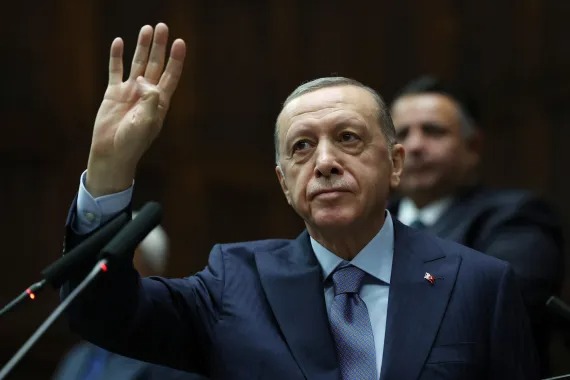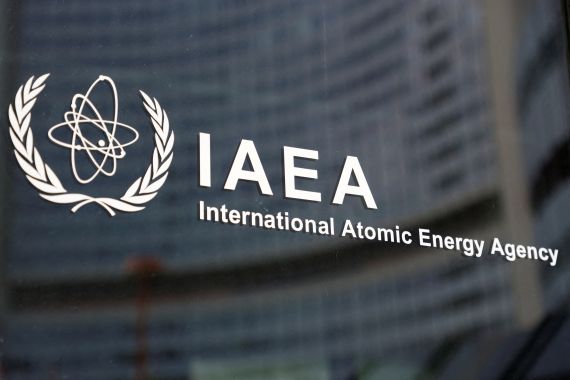In a fiery address to members of his Justice and Development Party (AK Party), Turkish President Recep Tayyip Erdogan intensified his condemnation of Israel, branding it a “terror state” and calling for Israeli officials to be brought before the International Court of Justice for alleged war crimes. Erdogan’s impassioned remarks come on the eve of a crucial diplomatic visit to Germany, where tensions are already running high.
Unprecedented Accusations and War Crimes Allegations
Erdogan did not mince words as he accused Israel of executing “the most treacherous attacks in human history” during its military campaign against the Palestinian armed group Hamas. The Turkish president claimed that Israel’s actions received “unlimited” support from the West, escalating his criticism to the point of labeling the situation a “genocide.” Erdogan’s call for Israeli leaders to face trial at The Hague adds a new dimension to the already strained relations between Turkey and Israel.
Erdogan reiterated Turkey’s unconventional stance, maintaining that Hamas is not a “terrorist organization” but a legitimate political party. This assertion challenges the widely held international view and sets the stage for potential friction during Erdogan’s upcoming visit to Germany.
Erdogan’s Challenge to Netanyahu and the West
Directing his ire at Israeli Prime Minister Benjamin Netanyahu, Erdogan demanded transparency regarding Israel’s possession of nuclear weapons. Furthermore, he predicted Netanyahu’s imminent departure from office, using strong language by stating he would soon be a “goner.” The Turkish president also pledged to take measures designating Israeli settlers in occupied Palestinian territories as “terrorists,” intensifying the diplomatic spat between the two nations.
Netanyahu, in response, dismissed Erdogan’s criticisms, asserting that he will not be “morally lectured” by a leader who supports “the terrorist state Hamas.” The exchange highlights the growing animosity between Turkey and Israel, with both nations recalibrating their diplomatic relations in the wake of the verbal onslaught.
Diplomatic Fallout and German Dilemma
Erdogan’s brazen comments come at a critical juncture, just days before his scheduled meeting with German Chancellor Olaf Scholz. Germany, traditionally supportive of Israel, now faces the challenge of hosting a leader who has openly condemned its ally. Scholz, defending his decision to meet with Erdogan, has signaled a reluctance to endorse an “immediate ceasefire” in Gaza, aligning with the US government’s position.
As Erdogan prepares for his German visit, the diplomatic fallout between Turkey and Israel intensifies. Turkey’s recall of its ambassador, suspension of official contacts, and Israel’s re-evaluation of relations further underscore the gravity of the situation. The rift between Erdogan and Netanyahu threatens to cast a shadow over international efforts to address the ongoing conflict in the Middle East.
In this charged atmosphere, Erdogan’s words reverberate globally, raising questions about the diplomatic consequences and the potential impact on the already complex geopolitical landscape in the region. As the Turkish president embarks on his diplomatic mission to Germany, the world watches closely, anticipating the outcome of this high-stakes confrontation.
















